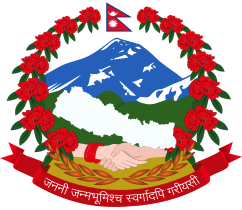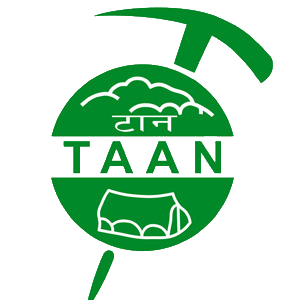Responsible Tourism
First and foremost, we are grateful to each and every one who visits the Himalayan region of Nepal, Bhutan, Tibet and India. These regions in the Himalaya may seem eternal, but it is one of the most fragile ecosystems on earth. Responsible tourism issues in the Himalayas are driven by poverty, a lack of education, and simple inefficiency when it comes to infrastructure.
Preserving and protecting this beautiful world of ours for a better tomorrow has become a mandate for us. With this understanding, we at Far Out, since our inception, have been committed to adhering to the practices of responsible tourism. Since the very first time, we trekked in Nepal, causing minimal impact to the places we visit by traveling “under your own steam” was our motto. We still adhere to these principles of “Leave No Trace” philosophy and is at the very heart of our travel philosophy.
Our sustainable tourism practices include a commitment to supporting local communities at every level of our operation. It underpins the way in which we create our innovative trip itineraries. Creating genuine and responsible itineraries often translate to real costs, with a host of responsible travel practices that underpin our prices. By integrating these practices into our operations we’re aiming for a style of travel that makes the world a better place. We believe in guiding and informing our every client. By demonstrating cultural sensitivity, and best practices in minimizing impact as we move through various landscapes our guests have a better understanding of the impact our visit makes to an area.
We stick to the guidelines created by KEEP (Kathmandu Environmental Education Project) a registered non-profit, non-governmental organization who works to ensure the future ecological and cultural prosperity of Himalayas and its people by maximizing the benefits and reducing the negative impacts associated with tourism.
We follow Leave No Trace ethics and guidelines. From selecting campsites on durable surfaces, to actively removing litter through our 10 Pieces Litter Collection Initiative, and giving back to local communities through our Community Project Travel program, Far Out is committed to truly responsible travel.
Far Out: Responsible Tourism Tips
We would like to provide a list of some of our practices that support our mission to provide safe, interesting, and fun programs in the spirit of responsible tourism.
- In order to discourage the use of firewood we carefully choose lodges where bio gas and other alternative fuel sources are used for cooking. During the camping, we use gas and kerosene stoves and never a firewood.
- It’s important to follow our clothing guide in order to have enough warm layers and outerwear to be comfortable in the outdoor environment. Therefore we ask that you use your well-designed clothing list as the first defense against cold and weather, and not the making of a fire when we are camping.
- Water is the very precious commodity and should not be wasted, so we ask for our guests to keep washing and showering to a minimum. Take environmentally friendly detergents and shampoos for hand and hair washing, and use as little as possible.
- Plastic water bottles have increasingly become a problem both in the backcountry and in cities. Though buying plastic water bottles seems the safest option, it also is the most damaging to the environment here, instead, we encourage the use of reusable personal water bottle coupled with a water purification system. Check with your local outdoor retailer about the different options available, explain where you are going and what you are doing, and they will be able to offer you a few options for your adventure.
- As always, we kindly request you refrain from littering. We would like to do more than just not litter, we can actually improve the trail by bringing back all the litter down to Kathmandu or deposit it in the collecting center Batteries cannot be recycled in Nepal so try to take them back to your home country.
- The mountain environment is fragile. Loss of vegetation contributes to erosion so we will avoid walking thorough shrubs no matter how hardy they appear.
- Please don’t collect flowers, plants or seeds as this disturbs the plant lifecycle. Remember the saying “take only pictures, leave only footprints.”
- Wildlife is threatened by loss of habitat in many places. Give space to wild animals and avoid making unnecessary loud sounds.
- Our commitment to the communities of Nepal starts right with our own company. Our staff and porters are well paid, insured and we provided adequate clothing and equipment during the trip.
- The communities we interact with along the way can benefit immensely from the added income of our purchasing goods and services. We maintain a practice of buying as many necessary commodities as we can from the villages where we are traveling, such as fresh vegetables, etc.
- Also, we try to use the local manpower where practical to support the trips. For example, if we are using horses, then we contract with a local provider.
- The people in the landscape are incredibly skilled weavers and craftspeople. We encourage our guest to buy local handmade items and support local skills. Also, we should refrain from buying things made out of endangered species.
- Bargaining for a lower price is often accepted and expected custom, but please remember that most communities barely make a profit already on their handmade crafts, and driving a very hard bargain will only put them at a loss.
- Check with your guide for advice on how to respond to begging and about appropriate gifts. It is usually better, for example, to give school materials or local food treats as a group, through the leader, to the school head or village head; just handing out sweets encourages children to be a nuisance by begging, and may well ruin their teeth in a place where there is no dental service.
- We must remember that we are in people homes when entering a community. It is not a museum, but a place people live their lives. Avoid wandering into areas that are private. If you really need to get close, ask your guide to help negotiate permission so that you are not disturbing someone’s work or privacy.
- People from the Himalayas are friendly but it is always wise to take photographs only after receiving permission from the person or people being photographed.
- In general, Himalayas is a conservative zone, though travellers are given more room to not adhere to local customs for the dress, we do appreciate when our guest monitor their clothing choice.
Lets protect OUR ENVIROMENT by working together so that our UNIVERSE becomes a better place to stay.










